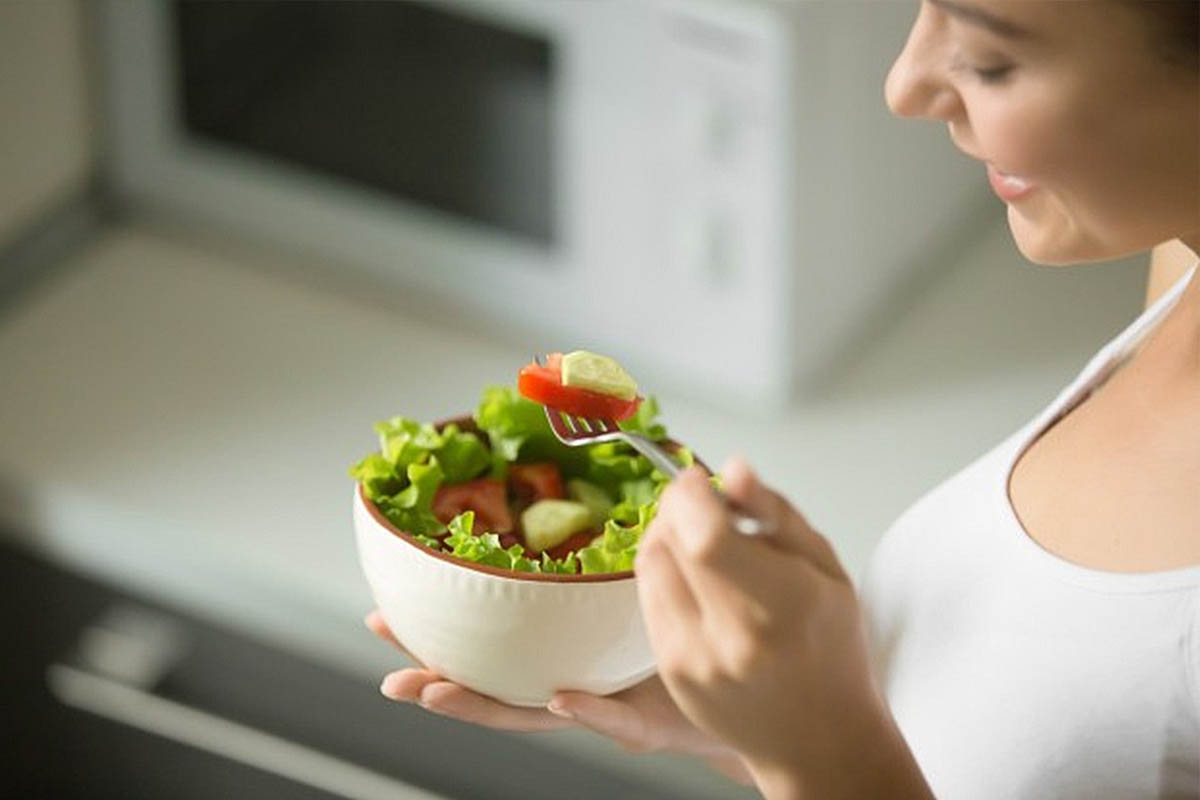Following a gastric sleeve procedure, it may be necessary for you to adhere to a particular eating plan during your recovery period. This plan might initially involve consuming only clear liquids and gradually introducing other foods into your diet.
If you’re considering gastric sleeve surgery, you’re likely curious about how you will adapt to a completely different way of eating. Getting ready for life after gastric sleeve surgery can be both exciting and challenging.

The dietary regimen you will need to follow before and after the surgery is highly specific and designed to facilitate your recovery while minimizing complications.
Over time, your diet will shift towards fostering healthy eating habits that will support continued weight loss and eventually help you maintain a healthy weight for the long term.
It is important to note that this article provides a general overview of what to expect before and after the surgery and should not be considered a definitive clinical guideline that applies to every patient. Your healthcare professional will closely monitor your progress after the surgery and tailor your diet according to your individual needs.
Preparing for Gastric Sleeve Surgery: Dietary Guidelines
In preparation for gastric sleeve surgery, one crucial aspect is following a specific diet known as the pre-gastric sleeve diet. The primary objective of this diet is to reduce the size of your liver, particularly if you are obese and have an accumulation of fat cells in and around the liver, causing it to be larger than normal.
Given that your liver is situated adjacent to your stomach, having an enlarged liver can complicate the surgical procedure for your doctor and increase the risks involved for you as the patient.
To ensure readiness for the surgery, you will be provided with a precise dietary plan to adhere to, starting two weeks prior to your scheduled surgery date.
This diet is stringent and focuses on reducing calorie and carbohydrate intake, which includes minimizing consumption of sweets, potatoes, and pasta. Instead, your meals will primarily consist of lean protein, vegetables, and low- or no-calorie fluids. Your doctor may establish a specific daily caloric goal for you to follow.
Within the last two days leading up to the surgery, you will transition to a clear, liquid diet. This may entail consuming a single no-sugar protein shake per day, along with broth, water, decaffeinated coffee or tea, Jell-O, and sugar-free popsicles. It is important to avoid caffeinated and carbonated beverages during this time.
Week 1 Post-Gastric Sleeve Diet: Guidelines for Optimal Recovery
During the first week following your gastric sleeve surgery, it is crucial to maintain the same clear liquid diet that you followed in the days leading up to the procedure.
This dietary approach aims to prevent postoperative complications such as bowel obstruction, gastric leakage, diarrhea, constipation, and dehydration. Allowing your body sufficient time to heal is of utmost importance, and adhering to this regimen will aid in achieving that goal. Here are some tips to keep in mind during this period:
- Stay well-hydrated by consuming an ample amount of clear liquids. If you find it challenging to maintain hydration, consult your doctor for recommendations on electrolyte drinks, such as low-calorie Gatorade, that you can try.
- Avoid consuming any beverages containing sugar. Sugar can contribute to a condition known as dumping syndrome, where an excessive amount of sugar rapidly enters the small intestine, leading to severe nausea, fatigue, diarrhea, and even vomiting. Moreover, sugar is high in empty calories and should be avoided at this stage and minimized in the long term.
- Steer clear of caffeine as it may contribute to acid reflux and dehydration. It is advisable to avoid caffeine-containing beverages during this period.
- Carbonated beverages, including those with sugar, zero-calorie options, and seltzer, can contribute to gas and bloating. It is recommended to avoid these types of beverages both in the postoperative phase and potentially in the long run.
Week 2 Post-Gastric Sleeve Diet: Advancing to Full-Liquid Options
During the second week following your gastric sleeve surgery, it is time to transition to a full-liquid diet. The following options are suitable for this stage:
- No-sugar nutrition shakes, such as Ensure Light.
- Instant breakfast drinks.
- Shakes made with protein powder.
- Thin broth and cream-based soups without any solid chunks. Soft soup noodles can be consumed in very small amounts.
- Unsweetened milk.
- Sugar-free, nonfat pudding.
- Sugar-free, nonfat frozen yogurt, ice cream, and sorbet.
- Nonfat plain Greek yogurt.
- Fruit juices without pulp, diluted with water.
- Thinned, hot cereal like Cream of Wheat or oatmeal.
It is natural to experience an increase in appetite during this period. However, it is important to resist the temptation of consuming solid foods. Your digestive system is still not ready to handle solids, and doing so can lead to vomiting and other complications.
By focusing on liquid-based options and avoiding sugar and fat, you will effectively prepare yourself for the next stage of your diet. It is still advised to steer clear of carbonated beverages and caffeine at this point.

Week 3 Post-Gastric Sleeve Diet: Introducing Soft, Pureed Foods
In the third week following your gastric sleeve surgery, it is time to incorporate soft, pureed foods into your diet. It is important to remember to eat slowly and chew your food thoroughly, aiming for at least 25 chews per bite if possible. You can puree any low-fat, sugar-free foods, including lean protein sources and non fibrous vegetables. Here are some acceptable options:
- Jarred baby food.
- Silken tofu.
- Cooked and pureed white fish.
- Soft-scrambled or soft-boiled eggs.
- Soups.
- Cottage cheese.
- Canned fruit in juice.
- Mashed bananas or very ripe mango.
- Hummus.
- Pureed or mashed avocado.
- Plain Greek yogurt.
During this stage, it is important to gradually increase your protein intake. If you find the taste of pureed lean protein sources unappealing, you can continue consuming no-sugar protein shakes or incorporate eggs into your daily diet.
It is crucial to continue avoiding chunky and solid foods, as well as caffeine, during this period. Additionally, opt for bland foods with mild or no seasoning, as spices may contribute to heartburn.
Week 4 Post-Gastric Sleeve Diet: Introducing Solid Foods
As you reach the one-month mark post-surgery, it is time to gradually incorporate solid foods into your diet. This is an opportunity to apply your newfound healthy eating habits with full determination. However, it is still important to avoid sugar, fat (including high-fat dairy), and hard-to-digest foods such as steak, fibrous vegetables, and nuts.
Furthermore, high-carb options like pasta and white potatoes should also be avoided. In terms of beverages, moderate consumption of caffeinated drinks can usually be reintroduced at this stage. Here are some foods that you can add to your list:
- Well-cooked chicken and fish.
- Well-cooked vegetables.
- Sweet potatoes.
- Low-fat cheese.
- Fruit.
- Low-sugar cereal.
Week 5 Post-Gastric Sleeve Diet and Beyond: Embracing Long-Term Healthy Eating
As you enter week 5 and beyond post-gastric sleeve surgery, you can safely consume solid foods and establish a new-normal eating plan for the long term. It is important to maintain the focus on lean protein and vegetables while introducing one new food at a time, allowing you to observe your body’s response.
Sugary sweets and soda should be avoided entirely or consumed only on occasion from this point onward. All other foods can be gradually reintroduced unless they provoke symptoms or discomfort.
When selecting your foods, make wise choices by opting for nutrient-dense options and avoiding empty calories. Aim to have three small meals throughout the day, with minimal snacking, as this may assist you in adhering to your plan. Additionally, maintaining proper hydration remains crucial.
Remember to listen to your body’s cues and adjust your eating habits based on your individual needs. It is beneficial to seek guidance from your healthcare professional or a registered dietitian for personalized advice and support as you navigate the long-term journey of maintaining a healthy eating pattern and achieving your weight loss goals.



